This site uses cookies, as explained in our terms of use. If you consent, please close this message and continue to use this site.
This site uses cookies, as explained in our terms of use. If you consent, please close this message and continue to use this site.
1 min Read
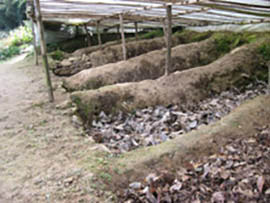
‘Effective microorganisms technology’ is a method developed by Professor T. Higa of Japan in which a mixed culture of beneficial microorganisms (primarily photosynthetic and lactic acid bacteria, yeasts, actinomycetes, and fermenting fungi) is applied as an innoculant to increase the microbial diversity of soils. This improves the soil quality and health, which improves the growth, yield, and quality of crops. In the variant being tested at ICIMOD it is combined with composting, to make an easy to prepare and very effective organic fertiliser.
Composting is a largely biological process in which microorganisms (both aerobic and anaerobic) decompose organic matter and lower the carbon-nitrogen ratio of refuse resulting in a final product of well-rotted compost. Compost has a high content of organic matter and important nutrients and is very useful for soil conservation and improving and maintaining soil fertility. In cooler climates, however, and with coarse material, the process of composting can be quite slow.
The EM composting method uses effective microorganisms and molasses to speed up the composting process and provide an improved compost product. Vegetation, especially weeds from cropping alleys and unwanted (exotic) forest weeds like banmara (Euphatorium adenophorum), is chopped and mixed with a small amount of goat manure and fermented organic matter containing beneficial microorganisms, and 1% of a solution of EM in molasses. The mixture is placed in piles on the ground. In the summer, it transforms into mature compost in 5-6 weeks.
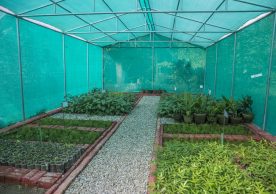
Large amounts of seeds and seedlings of useful plants from ICIMOD’s plant nursery have been distributed to farmers and farmers ...
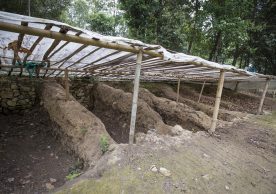
Green manure is a growing cover crop of annual plants (or other growing plant material) that is dug into the ...
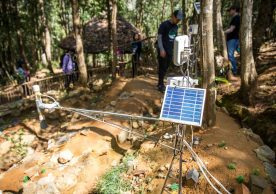
ICIMOD has designed and installed a prototype of a community-based flood early warning system at the Knowledge Park ...
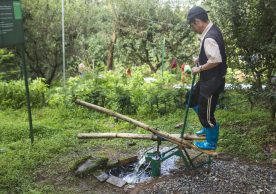
Treadle pump is a simple, cheap, and effective device for lifting water by alternate up and down movement of the ...
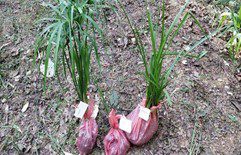
We are proud to collaborate with Nepal Knotcraft Centre to establish a fiber plant species demonstration ...
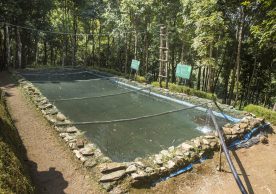
Livestock are an integral component of the mixed farming system practiced by the great majority of farmers in ...
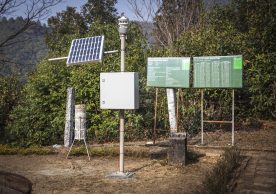
Agroclimatic conditions are extremely variable across the Hindu Kush Himalayan (HKH) region, and microclimatescan have a major effect on the ...
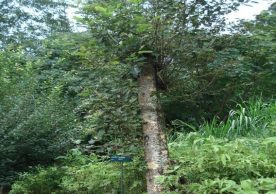
Alder (Utis) Pollarding What is pollarding? #Pollarding is a pruning system involving the removal of the upper ...

Large amounts of seeds and seedlings of useful plants from ICIMOD’s plant nursery have been distributed to farmers and farmers ...

Green manure is a growing cover crop of annual plants (or other growing plant material) that is dug into the ...

ICIMOD has designed and installed a prototype of a community-based flood early warning system at the Knowledge Park ...

Treadle pump is a simple, cheap, and effective device for lifting water by alternate up and down movement of the ...

We are proud to collaborate with Nepal Knotcraft Centre to establish a fiber plant species demonstration ...

Livestock are an integral component of the mixed farming system practiced by the great majority of farmers in ...

Agroclimatic conditions are extremely variable across the Hindu Kush Himalayan (HKH) region, and microclimatescan have a major effect on the ...

Alder (Utis) Pollarding What is pollarding? #Pollarding is a pruning system involving the removal of the upper ...

Large amounts of seeds and seedlings of useful plants from ICIMOD’s plant nursery have been distributed to farmers and farmers ...

Green manure is a growing cover crop of annual plants (or other growing plant material) that is dug into the ...

ICIMOD has designed and installed a prototype of a community-based flood early warning system at the Knowledge Park ...

Treadle pump is a simple, cheap, and effective device for lifting water by alternate up and down movement of the ...